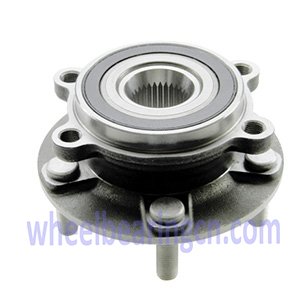What are signs of a bad wheel bearing? A bad wheel bearing can cause several noticeable symptoms. Here are the most common signs to watch for:
1. Unusual Noises
- Grinding or Growling Sound: A deep, rumbling noise that increases with speed, often coming from the wheel area.
- Humming or Whirring: A constant noise that changes with vehicle speed (may resemble tire noise but persists even on smooth roads).
- Clicking or Snapping: In some cases, a worn bearing may produce irregular clicking sounds, especially when turning.
2. Steering Wheel Vibration
- A shaky or vibrating steering wheel, especially at higher speeds, can indicate a failing wheel bearing.
3. Uneven Tire Wear
- A bad bearing can cause improper wheel alignment, leading to uneven or excessive tire wear on one side.
4. Wheel Wobble or Looseness
- If you feel play or looseness when rocking the wheel (while the car is lifted), the bearing may be worn out.
5. ABS or Traction Control Malfunction
- A failing wheel bearing can interfere with the wheel speed sensor, triggering ABS or traction control warning lights.
6. Pulling to One Side
- A severely worn bearing may cause the vehicle to pull to one side while driving.
7. Increased Road Noise
- A noticeable increase in noise, especially at highway speeds, even if it doesn’t sound like grinding.
How to Confirm a Bad Wheel Bearing?
- Lift the Wheel: Jack up the car and spin the wheel by hand—listen for grinding or roughness.
- Check for Play: Grab the wheel at the top and bottom and wiggle it. Excessive movement suggests a bad bearing.
- Test Drive: Listen for noise changes when swerving slightly left or right (shifting weight can make the noise louder or quieter).
If you notice these signs, have the wheel bearing inspected and replaced soon—driving with a failing bearing can lead to wheel seizure or loss of control.

